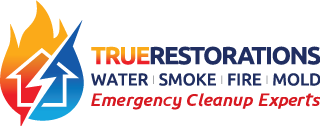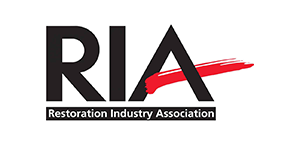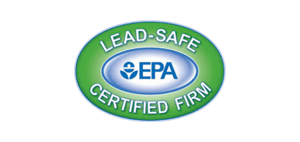In the United States, a house fire happens every 87 seconds. This shows how crucial it is to know how to recover from fire damage. Fires cause a lot of damage, including smoke, heat, and water damage. Knowing what to do next can help you rebuild your life and home.
First, make sure it’s safe to go back inside by contacting local fire authorities. Then, focus on the health of anyone hurt or pets. The Red Cross can offer immediate help, and telling family and friends you’re safe gets their support.
It’s also key to keep your property safe from more damage and theft. Companies like True Restorations can help with things like fencing, removing water, and taking out debris. Cleaning up smoke damage and soot is important to get the air clean again. And don’t forget, taking care of your mental health is just as important as the physical work.
Key Takeaways
- A house fire occurs every 87 seconds in the United States.
- The fire recovery process begins with ensuring re-entry safety and providing aid to those injured.
- Contacting professional fire damage restoration services is essential for effective home fire clean up.
- Inform family and secure the property to prevent further damage and looting.
- Emotional and mental health recovery is a critical aspect of the overall fire damage recovery.
Immediate Steps to Take After a Fire
After a fire, things can get really chaotic. But, it’s key to act fast for safety and to start fixing things. First, make sure everyone is safe and call 9-1-1 for help. Give first aid to anyone hurt and get medical help for those who need it.
After the fire is out, check if the building is still safe. Talk to local fire experts to see if it’s okay to go back inside. This step is very important for safety.
Then, call your insurance agent quickly. They can tell you about your coverage and suggest good restoration companies.
- Securing the property to prevent more damage
- Creating a detailed list for insurance claims
- Starting repairs and restorations
Keeping a detailed list of what got damaged is key for insurance. Starting restoration work right away helps lessen the damage and makes recovery easier. By acting fast, you can make things safer and get back on track faster.
Assessing Property Damage
After a fire, it’s crucial to assess property damage for repair and insurance claims.
Assessing property damage means looking at water, soot, and structural damage. Experts check the fire type, firefighting effects, and what can be fixed. This detailed check helps plan repairs.
Inspectors check the house’s safety, like framing and subfloors. They see if things can be saved or fixed.
With a thorough total loss inventory and damage assessment, homeowners can move forward with confidence. They know they have the right documents and expert advice for repairs and insurance.
Mitigating Further Damage
After a fire, it’s key to act fast to protect your property from more damage. Securing damaged areas is a top priority.
Removing water is also vital to stop water damage from firefighting. Quick action helps avoid mold growth, which can make things worse. Taking down damaged parts is crucial to make the area safe for fixing and rebuilding.
By doing these things, experts make sure your house is safe and ready for repairs. This stops the building from collapsing or getting worse. With the right help, owners can start fixing and recovering their property without worry.
Cleaning Up After a Fire
Cleaning up after a fire is tough but key to making a property like new again. It means getting rid of soot, smoke damage, and debris from burning stuff.
First, they find where the fire started and check for wet areas needing special care. They pay extra attention to materials touched by smoke. This detailed method makes sure nothing in the property is missed.
Next, they remove carpets and floor coverings and treat surfaces to kill smells. They also deodorize thoroughly to make the property smell fresh again. Plus, they pack out contents for cleaning and storage, making sure the property is safe and ready for people to live in.
Recovering Your Property and Life
After the fire danger has passed, it’s time to start the recovery process. First, contact your insurance company to see what you’re covered for and start the claim. Also, work with the local fire department and authorities to document the damage for official records.
Organizations like the American Red Cross and the Salvation Army offer vital help after a fire. They provide shelter, food, and clothes. Community groups also help by offering immediate support and aid to those affected.
Rebuilding your life after a fire means fixing your home and getting back important documents and items. Finding temporary shelter is key while your home is being repaired. If you need to replace documents like IDs or financial records, reach out to the right authorities.
The Bureau of Engraving and Printing and the Treasury Department can help replace damaged money and savings bonds. This is especially useful if your financial assets were harmed in the fire.
It’s important to keep track of all your expenses during recovery. Save receipts for repairs, replacements, and living costs. These records are crucial for insurance claims and can help when talking to the IRS or an accountant about tax deductions for fire loss recovery.
Emotional and Mental Health Recovery
Fires not only destroy buildings but also hurt our emotional and mental health. It’s crucial to focus on getting better after a fire. The Red Cross says managing stress and emotional recovery takes a few important steps.
- Acknowledge your feelings: The first step is to understand and accept your emotions. This helps you deal with the trauma.
- Seek support: Be with family, friends, and those who support you. Talk about what you went through and how you feel.
- Limit exposure: Stay away from constant reminders of the disaster. Avoid too much news and revisiting the site too often to help heal.
- Focus on the positive: Think about the good things in your life. This can help with stress and getting better emotionally.
- Accept help: Use community resources and mental health experts for extra support in recovering from a fire.
These steps are key to getting through the tough times of emotional and mental recovery. Remember, getting better takes time. Getting help from professionals can really help keep you on the path to good mental health.
Conclusion
Recovering from a fire is tough, but knowing how to rebuild is key. You need a plan for both quick actions and long-term steps. First, make sure you and your family are safe and protect your property. Then, call your insurance company right away and start cleaning up to prevent more damage.
It’s also vital to look after your mental health after a fire. The emotional impact can be huge, so getting support is crucial. Use experts for checking, fixing, and rebuilding your property. Keeping track of all costs and losses will help with your insurance claim.
Rebuilding after a fire takes a lot of effort. Getting help from your community and organizations can make things easier. By focusing on both practical steps and emotional healing, you and your family can get through this. Taking care of all the fire’s effects will help you bounce back stronger.

























